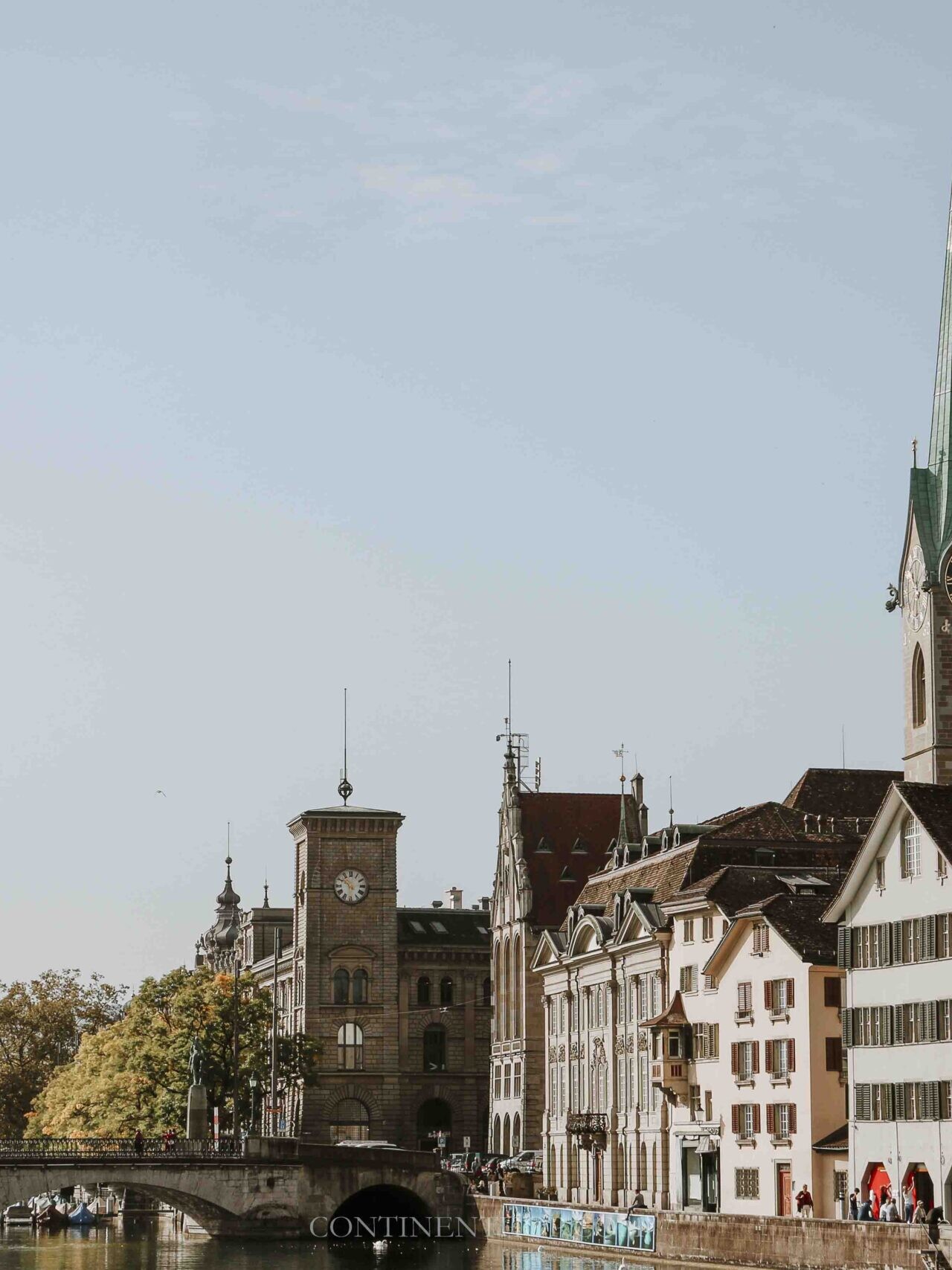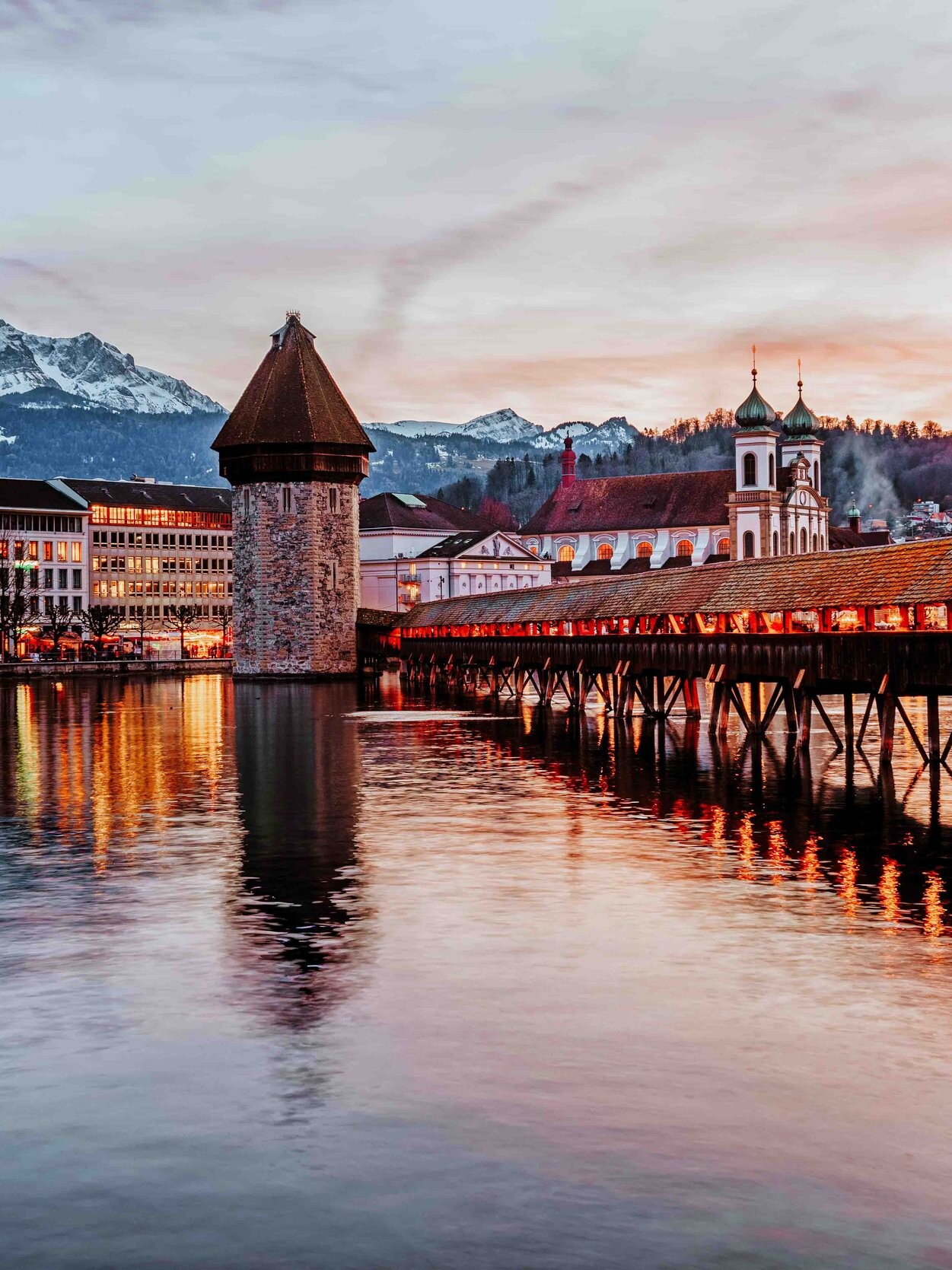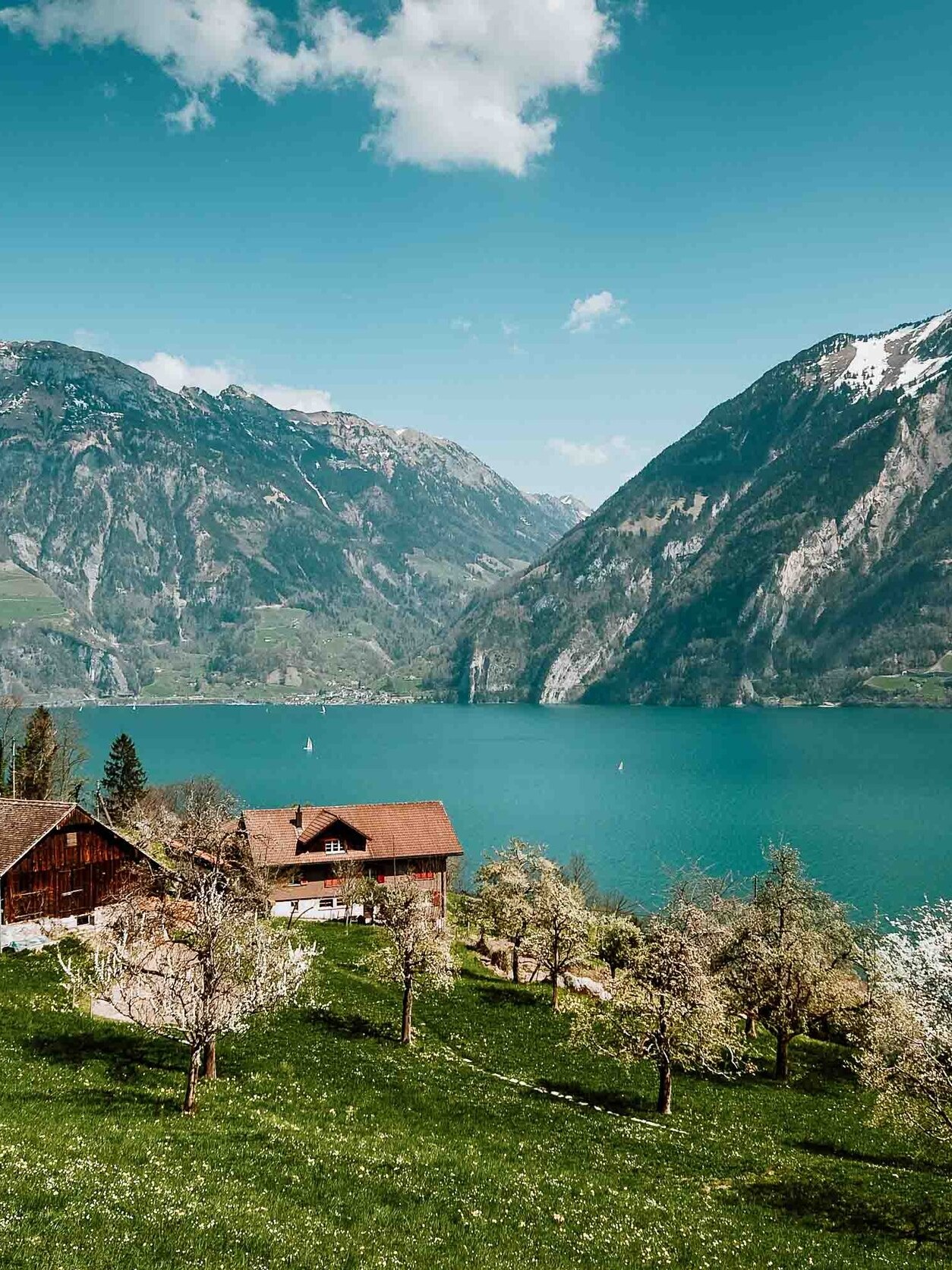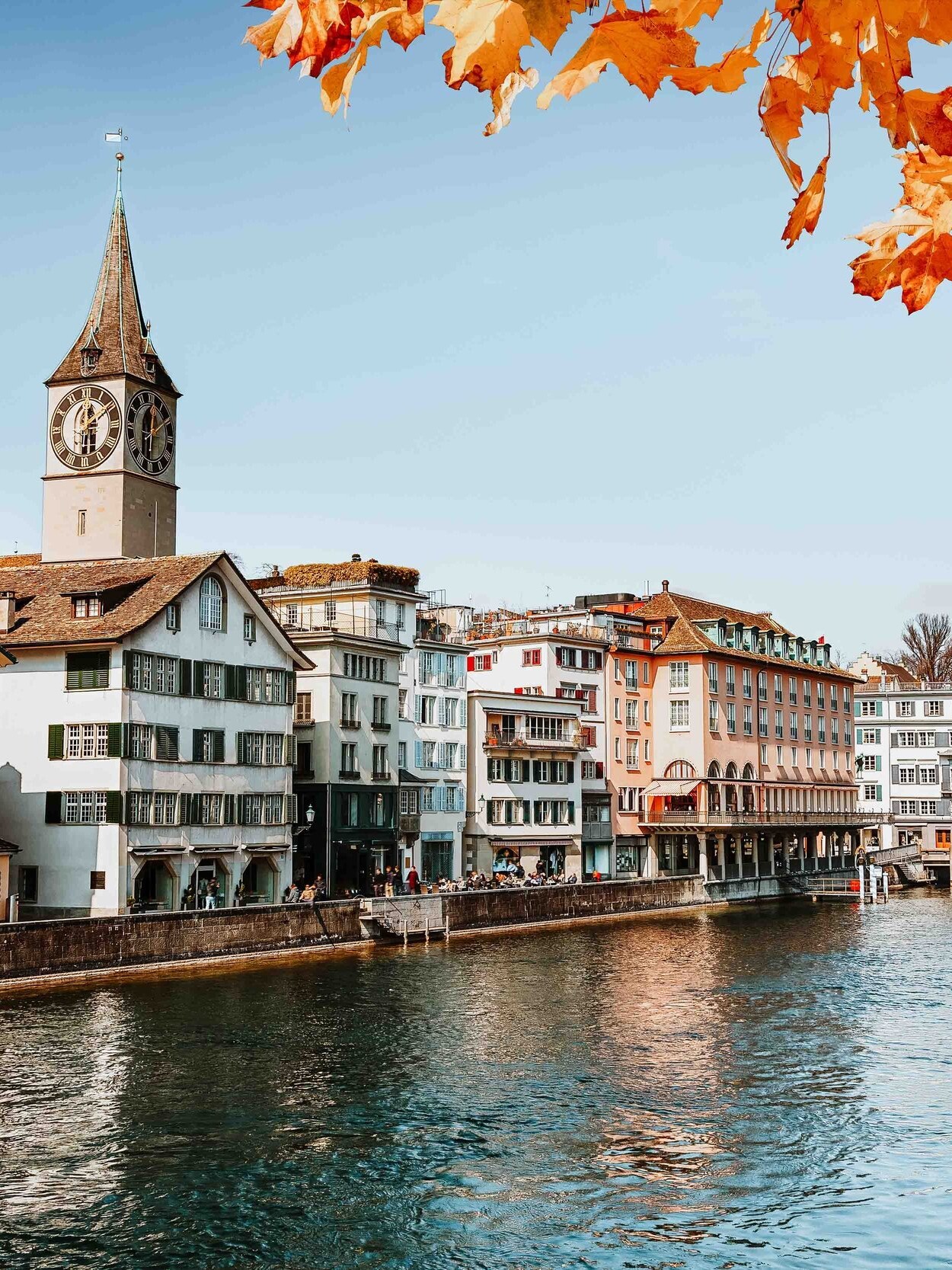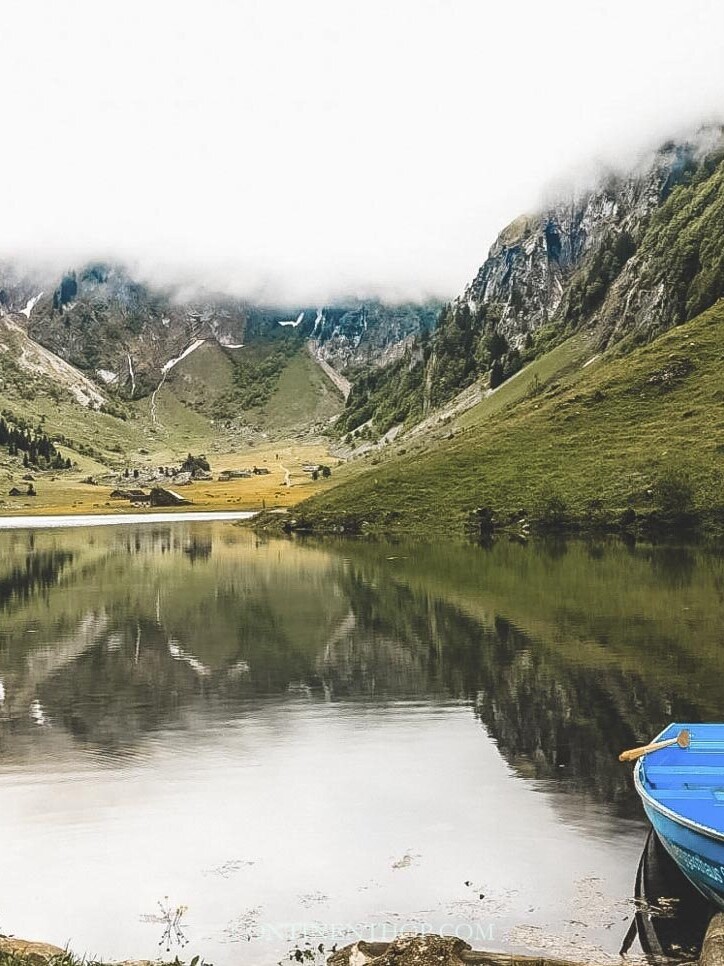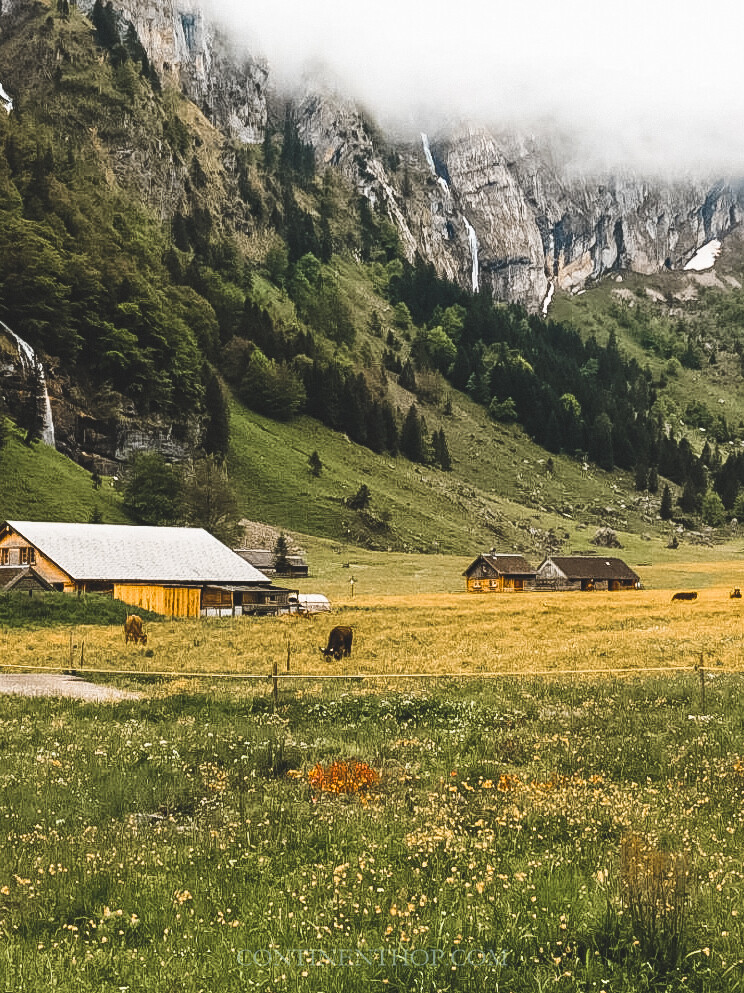Here’s info about sustainable tourism in Switzerland, offering practical advice on eco-friendly travel tips, accommodations, transportation options, and activities.
Switzerland stands as a testament to the wonders of nature, from its majestic Alps and serene lakes to its verdant valleys and forests. The country’s commitment to environmental conservation is evident in its well-preserved landscapes, stringent waste management policies, and innovative energy solutions.
In an era where the footprint of travel grows heavier, adopting eco-friendly travel practices becomes crucial. It’s about ensuring that these breath-taking destinations remain vibrant and accessible for generations to come.
Here’s info to guide travellers like you in making conscious choices that align with preserving Switzerland‘s pristine environment, enriching their travel experience while minimising their environmental impact.

Switzerland Ecotourism – Why Choose Eco-Friendly Travel In Switzerland
Choosing eco-friendly travel in Switzerland aligns with the global movement towards sustainability. It supports the country’s longstanding commitment to protecting its natural landscapes and cultural heritage.
Switzerland has set a global benchmark with its environmental policies and achievements. Its waste management and energy efficiency initiatives, such as widespread recycling programs and renewable energy sources using a solar generator, reflect a dedication to ecological stewardship.
Tourism, while beneficial for the economy, can strain natural resources and impact the well-being of local communities if not managed responsibly.
The influx of visitors can lead to overcrowded natural sites, pollution, and habitat disruption. By opting for eco-friendly travel practices, visitors help mitigate these pressures. Sustainable tourism practices ensure that destinations’ natural beauty and cultural integrity are preserved for future visitors.
Moreover, eco-friendly travel in Switzerland opens up opportunities for a more genuine and enriching experience. It encourages engagement with local economies by supporting small businesses and artisan products, contributing to community welfare and the retention of cultural identity.
Travellers experience Switzerland more authentically, connecting with its people, traditions, and landscapes in a way that respects and celebrates the local environment and culture
Planning Your Trip: Eco-friendly Essentials
Planning a trip to Switzerland with eco-friendliness at the forefront means considering the timing, accommodations, and even the contents of your luggage. Visiting during the off-peak seasons, such as late spring (May) or early autumn (September), not only allows for a more serene experience away from the crowds but also reduces the strain on local resources and infrastructure.
These periods offer the added benefit of witnessing Switzerland’s natural landscapes in their transitional beauty, with fewer tourists around.
When booking accommodations and services, looking for eco-certifications can guide travellers toward options that prioritise environmental sustainability. Certifications like the Swiss Tourism’s ‘Swisstainable’ label or the international Green Globe certification are indicators of establishments that meet strict environmental standards. These certifications cover energy efficiency, waste reduction, and promoting local culture and biodiversity, ensuring that your stay contributes positively to the environment.
Packing for the trip also plays a crucial role in minimising environmental impact. Bringing reusable items such as water bottles, eco-friendly toiletries, and shopping bags reduces the demand for single-use plastics and unnecessary packaging.
Opting for products with minimal packaging and those made from sustainable materials further supports waste reduction efforts. These simple yet effective packing choices not only lessen the environmental footprint but also encourage a mindset of sustainability that extends beyond the trip.
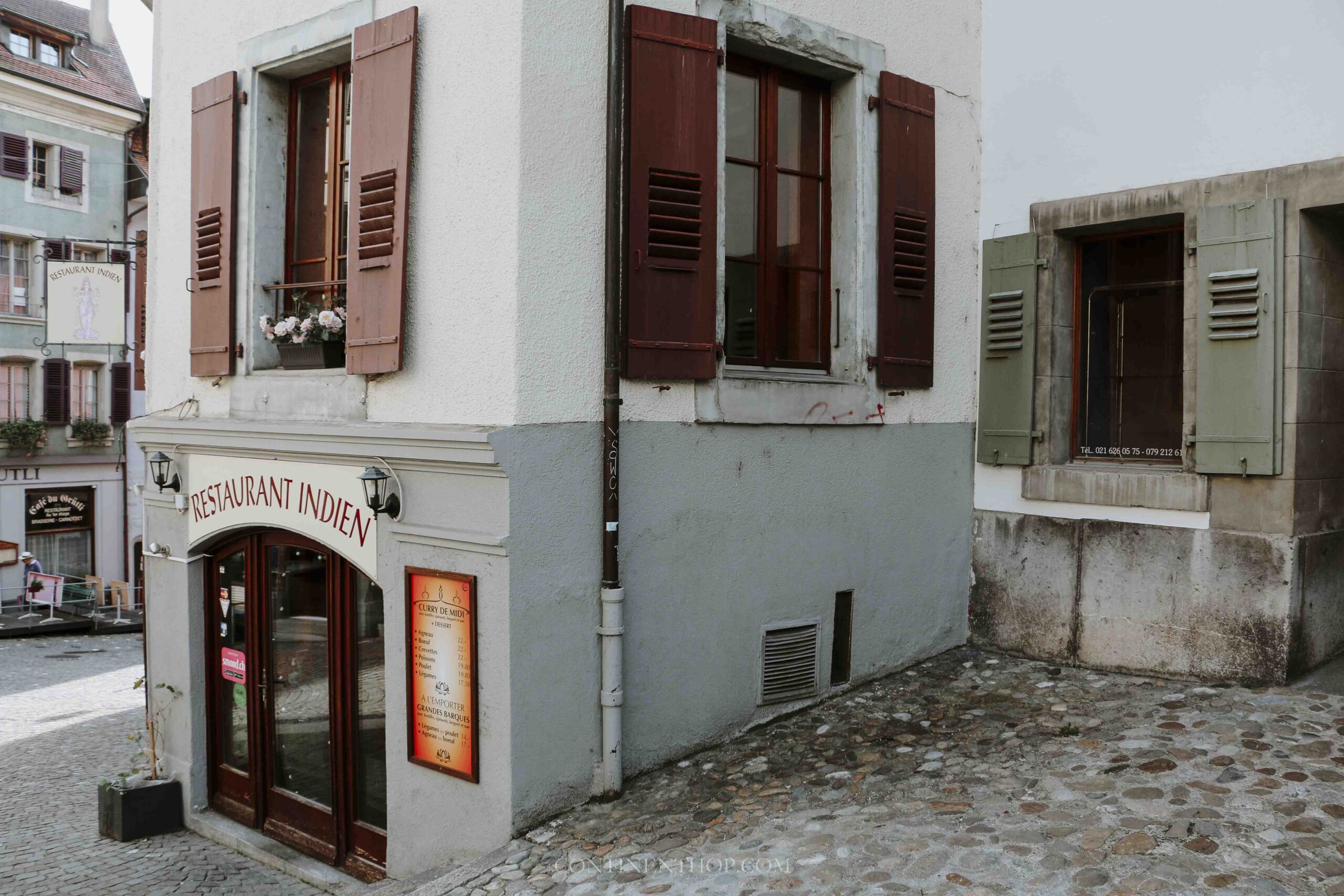
Eco-Friendly Transportation In Switzerland
Switzerland’s public transportation network is renowned for its efficiency, punctuality, and extensive coverage. The country offers an impressive array of eco-friendly travel options, including trains, buses, and boats, seamlessly connecting cities with the serene countryside, alpine regions, and lakeside towns.
This network makes it exceptionally easy for travellers to navigate the country without relying on private vehicles, significantly reducing their carbon footprint.
The Swiss Travel Pass is a boon for tourists, offering unlimited travel on the country’s public transportation network for a fixed period. This pass not only simplifies travel but also encourages the exploration of multiple destinations in an eco-friendly manner.
It includes trains, buses, and boats. It provides free or discounted access to museums and attractions, making it an economical and sustainable choice for experiencing Switzerland’s rich cultural and natural heritage.
For those flying into Switzerland, carbon offsetting presents a practical approach to mitigating the environmental impact of air travel. Several airlines and independent organisations offer carbon offset programs, allowing travellers to calculate and compensate for the carbon emissions associated with their flights by investing in environmental projects.
Exploring Switzerland by bike or on foot is perhaps the most sustainable way to enjoy its breath-taking landscapes. The country boasts an extensive network of cycling and hiking trails catering to all fitness and experience levels.
Popular routes like the Rhine Route for cyclists or the panoramic trails in the Swiss National Park for hikers offer immersive experiences in nature. Tips for these adventures include packing light, staying on marked paths to protect local flora and fauna, and always being prepared with maps and weather information.
These eco-friendly modes of exploration minimise environmental impact and enhance the travel experience through physical activity and a deeper connection with the natural surroundings.
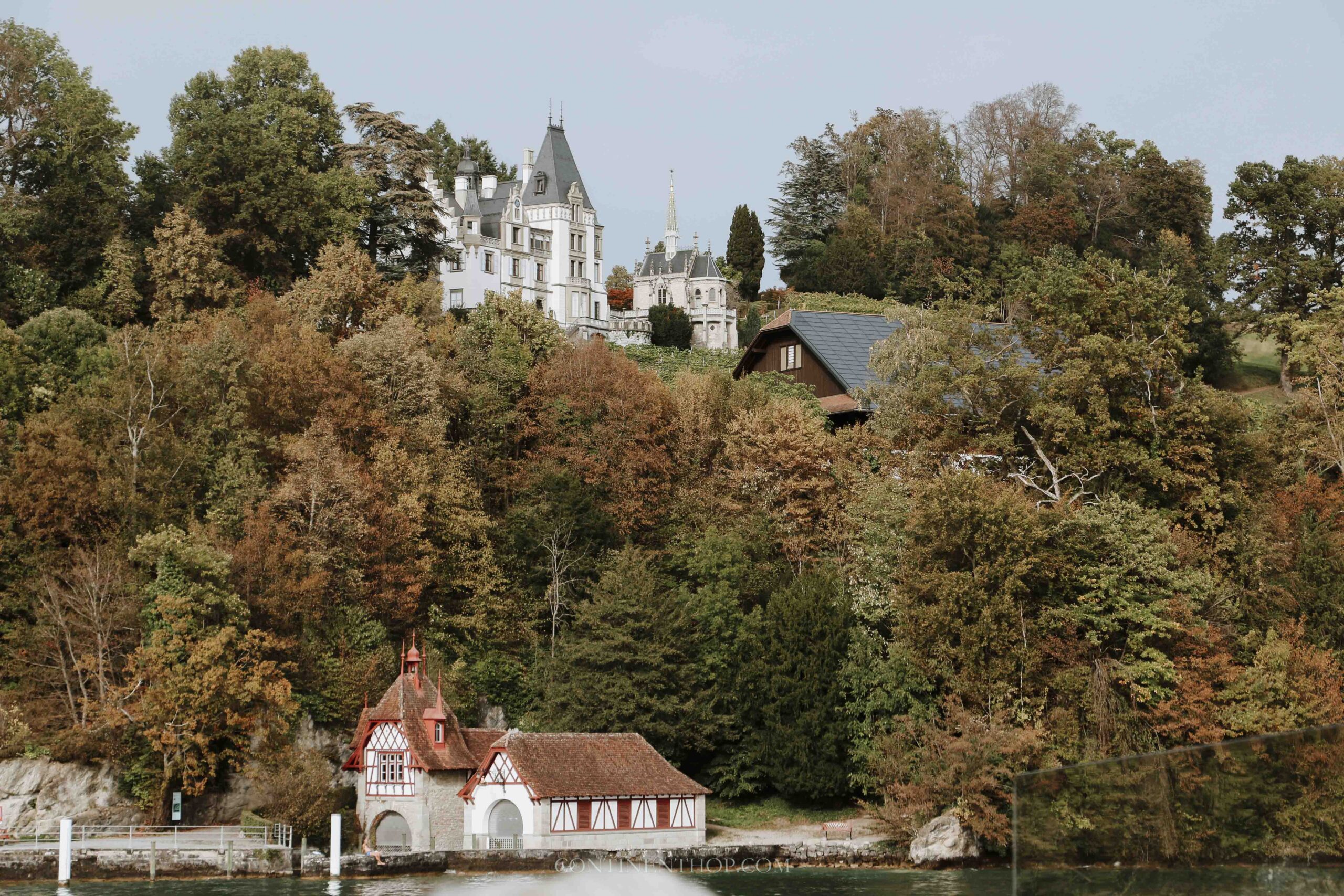
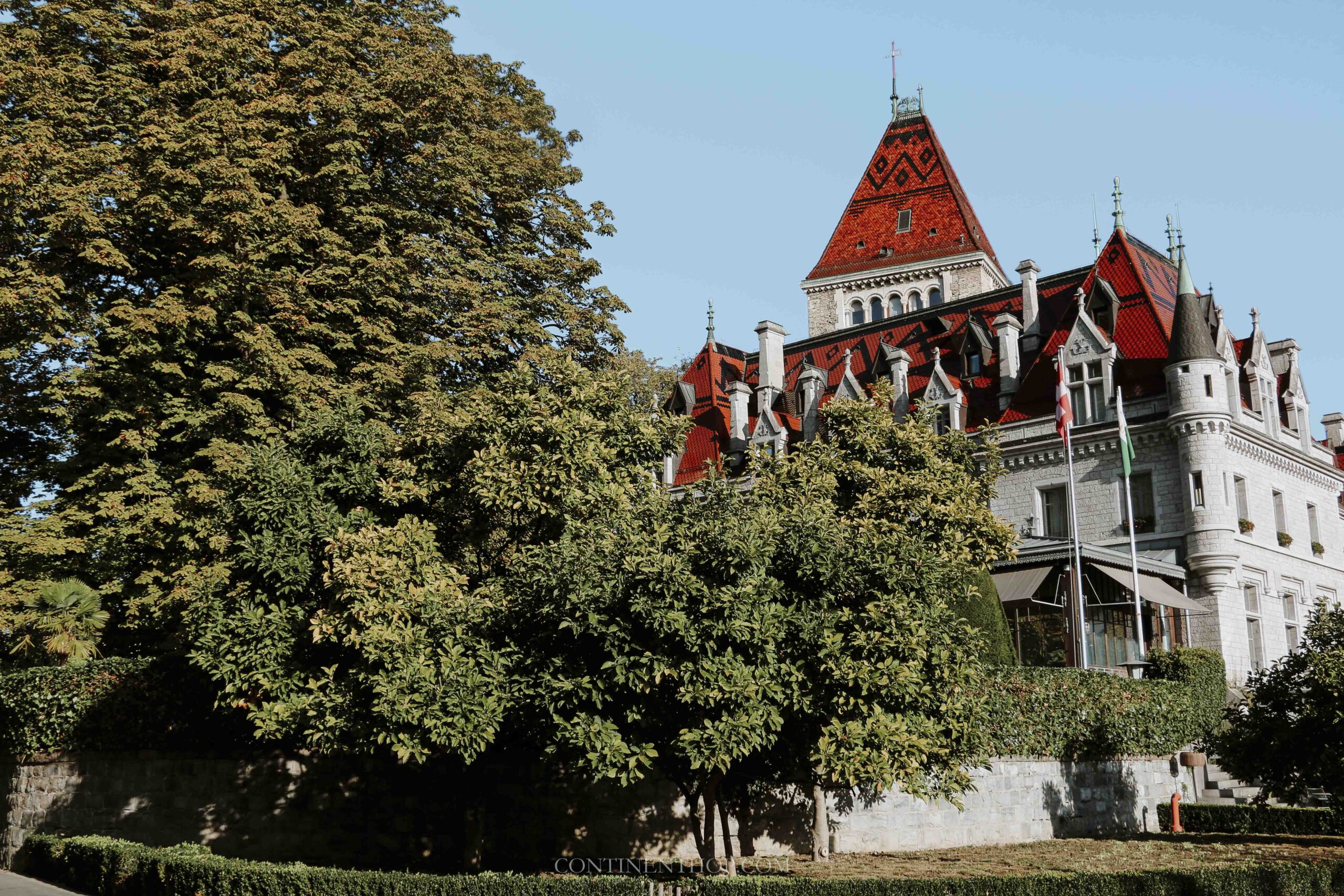
Sustainable Accommodation Options
Switzerland offers a variety of sustainable accommodation options for travellers keen on minimising their environmental impact. Eco-certified hotels and hostels are widespread, adhering to stringent sustainability standards, including energy efficiency, waste reduction, and renewable resources.
These certifications ensure that accommodations are comfortable and committed to preserving the environment.
Beyond the conventional, Switzerland is home to unique eco-friendly stays that immerse visitors in the country’s natural beauty while emphasising sustainability. Mountain huts provide a rustic and eco-conscious lodging experience, often situated in stunning alpine locations accessible by hiking or skiing, encouraging guests to connect with nature.
Organic farms offer stays where guests can experience life on a working farm, learning about organic agriculture and sustainable living. Eco-lodges, nestled in tranquil settings, focus on preserving the natural environment, using sustainable materials in their construction, and offering locally sourced organic meals.
When choosing sustainable accommodation, travellers should look for environmental certifications such as the EU Ecolabel or the Swiss Tourism’s ‘Swisstainable’ level indicating a commitment to sustainability practices.
Other indicators include using renewable energy sources, measures to conserve water, initiatives to reduce waste, and promoting local and organic food. These accommodations provide a place to stay and contribute positively to the local ecosystem and community, offering travellers a deeper and more meaningful experience.

Eco-Conscious Activities And Experiences
Switzerland’s diverse landscapes offer a playground for eco-conscious activities and experiences that allow travellers to enjoy the outdoors responsibly. Hiking, cycling, and kayaking stand out as ways to explore the country’s natural beauty with minimal environmental impact.
These activities encourage a slow-paced exploration, allowing for an appreciation of the surroundings without using fossil fuels.
Switzerland offers abundant opportunities for those interested in wildlife watching and nature photography. Tips for minimising disturbance include keeping a respectful distance from animals, using quiet observation techniques, and ensuring that all photography equipment is used responsibly to avoid impacting wildlife habitats.
Such practices ensure that the natural behaviour of animals is not disrupted, preserving the integrity of the ecosystem.
Winter in Switzerland doesn’t mean a halt to eco-friendly activities. Cross-country skiing and snowshoeing are excellent options for experiencing the serene, snow-covered landscapes.
These sports require no lifts and much less infrastructure than downhill skiing, reducing their environmental footprint. They also provide a quiet, immersive way to enjoy the winter wilderness, promoting physical health and a deep connection with nature.
Participating in local conservation efforts or joining eco-tours led by knowledgeable guides can enrich the travel experience in Switzerland. These activities offer insight into the country’s natural and cultural heritage and support local initiatives to preserve these treasures.
Whether it’s engaging in a tree-planting project or taking part in a guided tour that emphasises respect for the environment, these experiences foster a deeper understanding and commitment to environmental stewardship among visitors.
Eating And Shopping Sustainably In Switzerland
Eating and shopping sustainably in Switzerland is a delightful way to support local economies and reduce environmental impact while indulging in the country’s rich culinary and artisan traditions. Opting for organic, local, and seasonal food choices supports local farmers, reduces the carbon footprint associated with transportation, and ensures fresher, more flavourful meals.
Many restaurants and cafes across Switzerland prioritise these values, sourcing ingredients from nearby farms and producers to create dishes that reflect the region’s seasonal bounty.
Seeking out eco-friendly restaurants and cafes can enhance the travel experience, offering a taste of authentic Swiss cuisine made with care for the environment. These establishments often boast menus filled with organic and locally sourced ingredients, providing a dining experience that is both delicious and conscientious.
Shopping sustainably is key for those looking to take a piece of Switzerland home. Local markets are treasure troves of fresh produce, artisan cheeses, handmade crafts, and other local specialities. These markets offer high-quality items and the opportunity to interact with local vendors, learning more about the origins and traditions behind their products.
Zero-waste stores are also becoming increasingly popular, offering products without unnecessary packaging, from food to personal care products. These shops are ideal for travellers looking to minimise their environmental impact.
When searching for souvenirs, sustainable options abound. Instead of mass-produced items, travellers can choose sustainable souvenirs such as locally crafted goods, which support local artisans and ensure that purchases have a minimal environmental footprint.
Whether it’s a hand-carved wooden figurine, a piece of traditional Swiss textile, or artisan chocolates, these souvenirs offer a meaningful reminder of the journey while supporting sustainable practices.
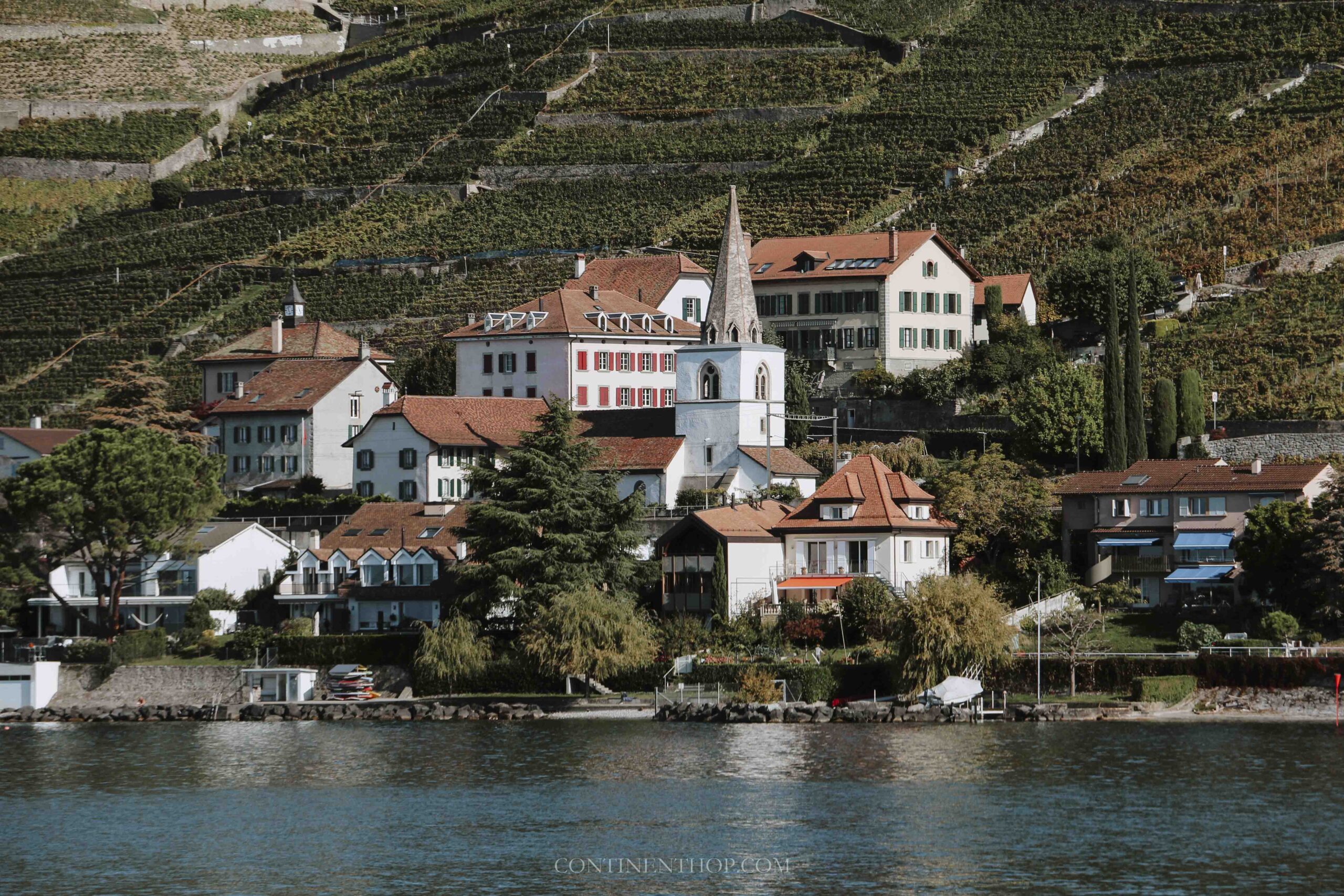
Leaving No Trace: Best Practices For Eco-Friendly Travellers
Adopting a ‘leave no trace’ approach is fundamental for eco-friendly travellers visiting Switzerland. This mindset ensures that the natural beauty and integrity of the places visited are preserved for future generations.
Key guidelines include responsible waste disposal by packing out what is brought in, especially in natural settings where litter can harm wildlife and degrade the environment. When encountering wildlife, maintaining a safe distance and not feeding the animals are crucial practices that protect the animals’ natural behaviours and the safety of visitors.
Minimising one’s carbon footprint while travelling in Switzerland can be achieved through conscious choices. Opting for public transportation, such as trains and buses, reduces emissions and offers a scenic and relaxing way to see the country.
Walking or cycling provides a zero-emission alternative for shorter distances that offers health benefits and a closer connection to the local environment.
Engaging with local communities and cultures respectfully and sustainably enriches the travel experience and supports local economies. This includes choosing locally owned accommodations, eating at local restaurants, and purchasing goods from local artisans.
Such practices ensure that the benefits of tourism are distributed within the community and help to preserve the unique cultural heritage of the places visited. Being open to learning from and listening to residents can also provide deeper insights into the local way of life, fostering mutual understanding and respect.


Conclusion
So here’s the essentials of eco-friendly travel in Switzerland, highlighting the significance of sustainable accommodations, transportation options, and activities that align with environmental conservation. I’ve highlighted the importance of engaging with local communities and indulging in organic, local cuisine responsibly. As travellers embark on journeys across Switzerland and beyond, adopting these eco-conscious practices can make a profound difference in preserving the beauty and vitality of our planet. Let this guide inspire you to plan your next adventure with sustainability at its core, encouraging a travel ethos that enriches your experience and contributes positively to the destinations you visit.


Award-winning Analyst, multi-nominated digital content creator and photographer Lavina Dsouza's words capture stories about culture and tradition mainly through its food and people. She has written and contributed to publications such as The Washington Post, Lonely Planet and Matador Network, to name a few. She is the editor of UntraditionalHumans.com, a non-profit created to share inspiring stories from women of colour who break free from traditions and choose happiness.
She's also a speaker passionate about DEI and champions solo travel. She has collaborated with numerous renowned brands such as Intrepid Travel, TripAdvisor, Travel and Leisure and Adobe, to name a few.
She can be found on Twitter and Instagram.
PIN FOR LATER!
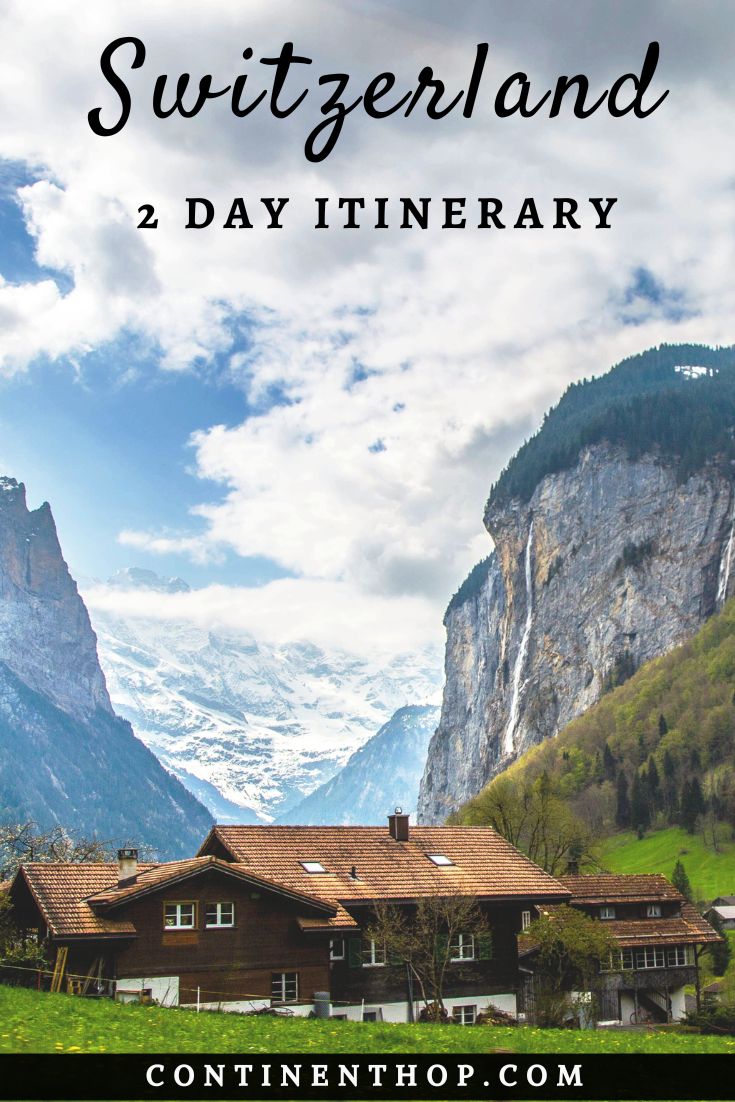

EXPLORE MORE OF SWITZERLAND
Some of the links on this post are affiliate links. These do not cost you extra to use, but will help provide Continent Hop with a small commission if/when you purchase through them, to recover some of the costs of running this website and providing free content to help you plan your travel. I appreciate your support!


